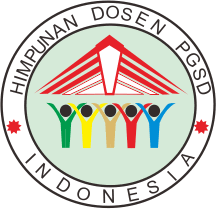Analisis efektivitas pembelajaran daring dalam mata pelajaran ips kelas v sekolah dasar
Abstract
This research aims to analyze the effectiveness of online learning in Social Science which was implemented in the fifth grades of elementary school as seen from the teacher’s ability to managed online learning, student activities during online learning and the outcomes of student’s cognitive learning. This research was conducted at Soropadan elementary school of Surakarta, from October to December. This research used phenomenological qualitative research method. The subject of this study were the teachers and the students of Soropadan elementary school of Surakarta. The technique of collecting the data used were observation, interview, and document analysis techniques. From those three data, it can be concluded that online learning which implemented in the fifth grades of Soropadan elementary school of Surakarta in Social Science was less effective. This phenomenon occurs because there was only one from the three indicators that can worked properly. Many factors influence it, such as the limitation of the teachers, the parents’ ability in using or providing the online media, the passive students in the online learning process, also the decrease of the outcomes of the students’ cognitive learning during the online learning. In online learning, not only teachers, students, and schools as determinants of success but infrastructures such as devices, the internet, and the environment of students at home also have an important effect. This infrastructure factor causes low enthusiasm and activeness of students so that cognitive learning outcomes decline. Therefore this research is important for better online learning in elementary school.
Keyword: effectiveness of learning, online learning, social studies learning, elementary school
Full Text:
PDFRefbacks
- There are currently no refbacks.



